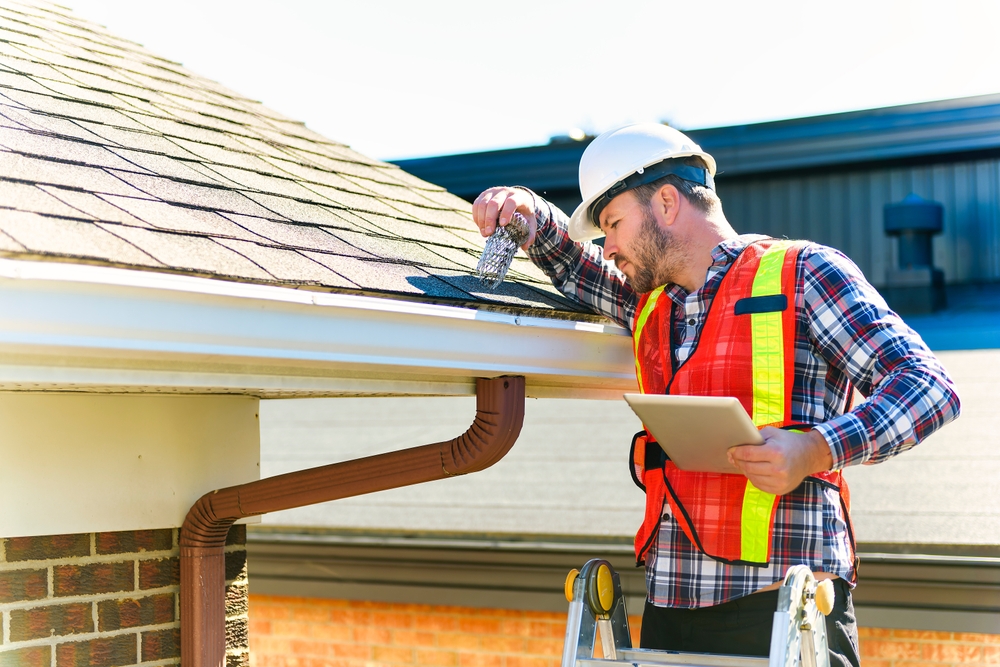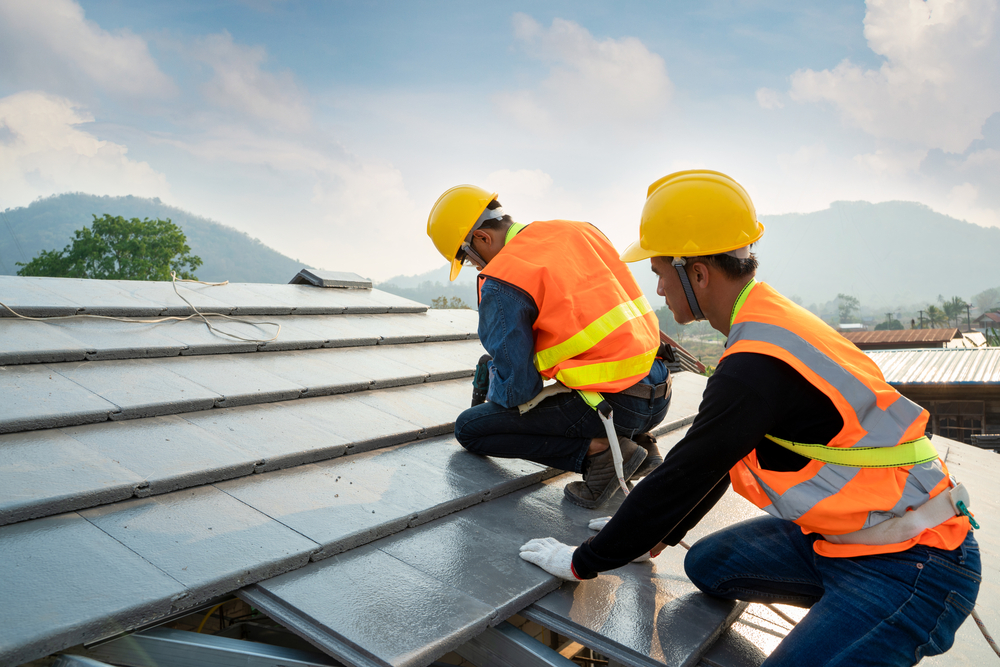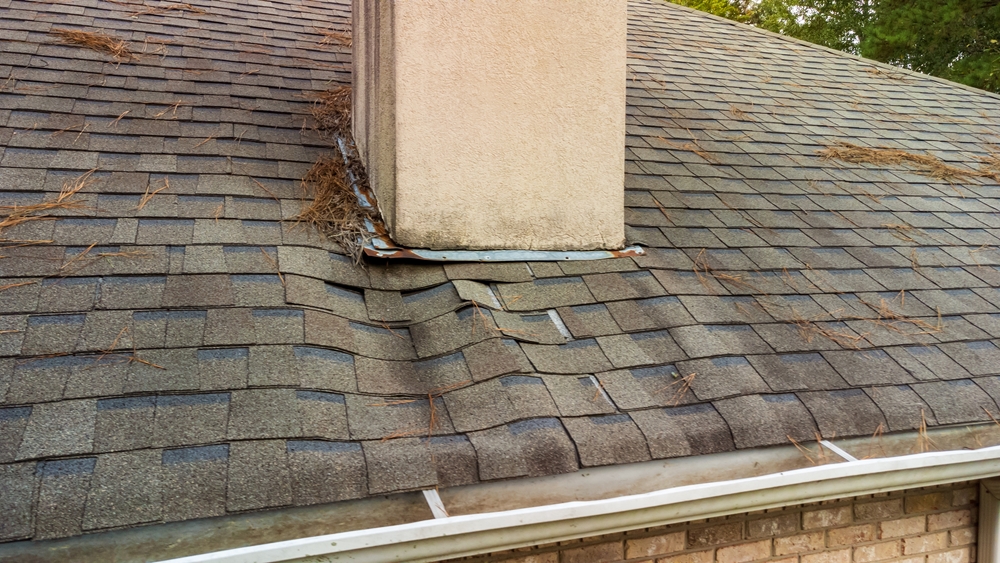Are you considering buying or selling a home? The importance of thorough roof inspections cannot be overstated. Your roof stands as your shield against the elements, making its health critical for the integrity of your home. At Realoq, we understand the significance of this process and aim to guide you through every step to ensure a seamless experience.
Why Roof Inspections Are Crucial
A comprehensive roof inspection is a pivotal part of the home buying or selling process. It helps identify potential issues that could lead to costly repairs or affect the property’s value. From leaks to structural damage, an inspection reveals it all, allowing for informed decisions.
Some key reasons why roof inspections are so important include:
- Detecting leaks early: Leaks can cause water damage to insulation, walls, ceilings, and more if left unaddressed. An inspection finds existing or potential leaks.
- Assessing roof condition: The inspector examines shingles, flashing, gutters and more to determine the roof’s age and expected remaining life. This informs the buyer on upcoming replacement needs.
- Structural soundness: An inspection verifies the integrity of the underlying roof structure and decking to ensure structural stability.
- Insight into other issues: Roof issues may indicate larger problems with attics, ventilation, chimneys and more. An expert inspection can uncover these associated problems.
- Risk evaluation: The information gathered determines the urgency of any repairs and allows evaluation of potential risks, costs, and liabilities.
- Property value impact: Major roof problems can negatively affect property value. An inspection provides this information to buyers before purchase.
Skipping an inspection often leads to inheriting pre-existing conditions without sufficient prep or budget planning. Don’t take on this serious risk – a roof inspection provides peace of mind.
Choosing a Qualified Roof Inspector
Choosing a qualified, experienced inspector is paramount. They should have specific training and certifications related to performing roof examinations. Some things to look for include:
- Relevant Credentials: Ask about licensing, roofing-specific certifications, and association memberships that indicate advanced qualifications. Examples include state roofing contractor license, ARCA Certified Roof Inspector credential, NRCA ProCertification, or ASHI certification.
- Insurance Coverage: Only hire a fully insured company to protect yourself from liability. Request certificate of insurance from the inspector.
- Industry Experience: Search for lengthy experience specifically doing roof inspections, not just roof repairs. More years in the field results in greater detection ability.
- Sample Reports: Quality inspection reports will be comprehensive, clear, and detailed. Ask to view samples to assess the inspector’s survey practices.
- References: Strong references from prior clients can help verify a company’s reputation and expertise.
A roofing inspector lacking proper credentials or experience may fail to identify important issues, leaving you vulnerable. Do thorough research so credentials and an excellent track record give you confidence in the inspection findings.
Key Areas Covered in a Roof Inspection

A comprehensive roof examination includes assessment of all visible roofing system components as well as areas prone to hidden decay. The inspector will survey for:
- Roof Structure: Checks that roof rafters/trusses, sheathing, and decking are in good structural condition without sagging, cracks, or decay. This includes confirming proper connections, ventilation, and attic conditions.
- Roof Covering Status: Documents covering material type/age, conditions of surfaces, and expected remaining life. Also notes previous repairs, ponding, and overall weathering.
- Flashings: Checks rubber boot, metal step flashing, chimney flashing and other water diverter systems to confirm proper functioning without leakage or corrosion.
- Skylights & Vents: Verifies roof penetrations are properly flashed without leaks or damage. Checks functionality of powered vents.
- Drainage Systems: Confirms gutters, downspouts, and extensions are clearing water properly without leakage, overflow or ground erosion.
- Chimneys & Rooftop Structures: Checks structural integrity, waterproofing, flashing connections to roof, and related moisture issues of chimneys, flues, and mounts for A/C units, antennae, etc.
- Attic Conditions: Inspects for adequate insulation coverage, proper ventilation, animal/insect infestation, previous water leaks, or mold outbreaks.
The inspector will also note the roof’s style, pitch measurements, sizes, and special features to provide a clear profile.
With all aspects and trouble spots thoroughly evaluated, an expert can detect existing or probable functionality issues in need of repair. This prevents unpleasant surprises post purchase.
Major Roof Problems to Watch For
There are several common roof problems that may warrant immediate repair, replacement, or further evaluation by a roofing contractor. Home buyers and sellers should be on alert for:
- Leaking: Water leaks indicate likely hidden water damage. Staining, moisture, rot around leak points is problematic.
- Cracking Shingles: Pervasive cracks or brittleness among shingles spell their demise. Curled or loose tabs also indicate replacement needs.
- Roof Movement: Sag lines, unevenness, or rooftop sinking suggests structural deterioration and instability.
- Damaged Flashings: Cracks, exhaust pipe leaks, loose downspout connections causes moisture exposure.
- Mold/Mildew Growth: Discoloration and leafy mold growth arises from excess moisture. Further examination for leaks needed.
- Chimney Crumbling: Mortar/brick deterioration compromises waterproofing. Flashing connections may also fail.
- Prior Quick Fixes: Band-aid repairs like caulking cracks or tar use indicates larger issues.
- Nearing End of Life: If roof is nearing or past average material lifespan (12-20 years), plan for imminent replacement.
Issues like consistent moisture, dark stains, or compromised structural components necessitate significant repair or replacement. These problems are too risky to ignore.
Most Common Roofing Materials – Pros & Cons

There are several roof covering materials used on homes today, each with unique benefits, drawbacks, and replacement timelines. Common options include:
Asphalt Shingles
- Pros: Very cost-effective; Available in a variety of styles and colors; Easy for roofers to install and repair; Can last 15-30 years.
- Cons: Temporary fixes may skew age; Hurricane winds can damage easily; Hot climates cause faster wear; Annual professional cleaning needed.
Metal Roofing
- Pros: Highly durable for 40+ years; Withstands weather extremes well; Very fire resistant; Comes in attractive styles resembling shingles or tile.
- Cons: Higher upfront cost but very long lifespan. Noise from rain/hail requires soundproof underlayment installation.
Slate or Tile Roofing
- Pros: Extremely durable at over 50 years; Very fire resistant and impervious to insects/rot; Offers beautiful aesthetic; Can be repaired vs fully replaced.
- Cons: Much heavier than other roofing requiring reinforced infrastructure; Higher upfront installation expense.
Wood Shakes & Shingles
- Pros: Offers wonderful rustic visual appeal on certain home styles; Available in natural or synthetic wood materials; Can last 30+ years.
- Cons: Requires regular coatings to protect from moisture damage; Flammability risk if unprotected; Not good in humid, rainy climates; Slope restrictions may apply.
Understanding your roof type’s expected longevity, maintenance needs, repair costs and warranty protections allows smart budgeting as a homeowner.
Frequently Asked Questions About Roof Inspections
Many first-time home buyers and sellers have questions about the specifics of the roof inspection process. Some common FAQs include:
Why can’t I do the roof inspection myself?
While homeowners can do a visual inspection from the ground with binoculars, only a trained professional has the expertise to truly examine all roof aspects hands-on. They also have specialized equipment like ladder extensions and roof probes to inspect surfaces and undersides most homeowners cannot reach or see. Thermal imaging tools also help them detect unseen moisture issues. Attempting inspection yourself could be dangerous and misses too many problems. Always hire an expert.
What’s checked on a basic inspection vs a more detailed one?
A basic roof exam involves exterior visual scrutiny to identify obvious surface issues, leakage points, drainage blockages, chimney connections, etc. This is often sufficient for newer roofs. More complex roofs or those nearing replacement age warrant a more advanced inspection. This comprehensive assessment may involve complete walking of the roof, interior attic and deck underside checks, moisture meter scanning tests, ventilation verification, and more exhaustive documentation. Additional testing has higher cost but reduces risk for older roofs.
Can an inspector tell if hail or storm damage has occurred?
Yes, a properly trained inspector has the knowledge to detect and document prior hail or storm damage even if repairs were done. Signs involve impact dents, mismatched replacement shingles or tiles, distorted surface areas, and residual moisture stains around damage areas. If the roof is newer, they can confirm it has the upgraded impact resistant building code standard to withstand hail. Evidence of weather damage history is required disclosure to potential buyers.
What’s included in the inspection report?
Quality reports always include detailed documentation of all roof elements surveyed, clear photographs of each roof plane from different angles, and any discovered deficiencies. The report indicates the inspector’s assessment of remaining life, recommended repairs with cost estimates, further evaluation needs, and summarized conclusions. There should also be a safety hazards advisories page if issues exist, especially for aging roofs. Ensure your report delivers full documentation.
Can I request references from past clients?
References are an excellent idea when selecting your inspector. Any reputable company with high service standards will gladly provide a list of references upon request. Speaking directly to other customers offers validation of their experience, expertise, analysis capabilities, and reporting effectiveness. Checking references helps you make the best choice.
The Takeaway on Roof Inspections
Prioritizing a thorough roof inspection plays a valuable role in assessing condition defects early, avoiding future problems, and making informed decisions as a buyer or seller. Working with a properly vetted professional ensures you understand the full scope of roof status, necessary repairs, safety risks, and potential red flags. Don’t leave such critical insight to chance. Leverage the roof inspection process for enhanced property protection and real estate success.
At Realoq, we believe empowering homeowners with intelligence around home systems leads to greater safety, enjoyment and asset protection. A roof inspection delivers this knowledge, offering peace of mind through even the most complex real estate transactions. Don’t leave things to chance – let a roof inspection give you power!


